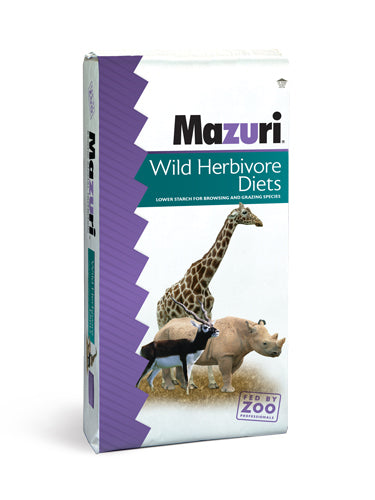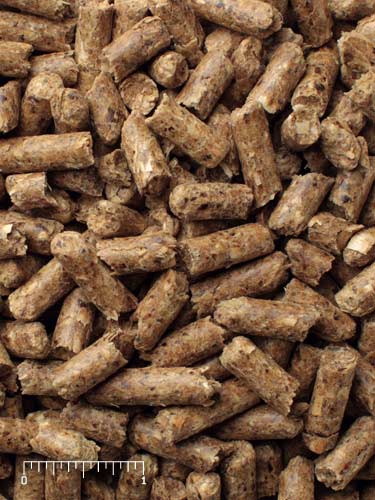Every exotic animal deserves the right nutrition
| Crude protein not less than Crude fat not less than Crude fiber not more than Ash not more than Calcium not less than Calcium not more than Phosphorus not less than Salt not less than Salt not more than Sodium not more than |
14.0% 4.0% 22.0% 9.0% 0.85% 1.35% 0.50% 0.60% 1.10% 0.70% |
Ground Soybean Hulls, Wheat Middlings, Dried Plain Beet Pulp, Dehulled Soybean Meal, Cane Molasses, Oat Hulls, Ground Oats, Ground Whole Aspen, Corn Protein Meal, Soybean Oil, Calcium Carbonate, Dicalcium Phosphate, Brewers Dried Yeast, Salt, Lignin Sulfonate, Calcium Propionate (a Preservative), Sodium Sesquicarbonate, Magnesium Oxide, Artificial Apple Flavor, DL-Alpha Tocopheryl Acetate (Vitamin E), Sucrose, Riboflavin-5-Phosphate, Preserved with Mixed Tocopherols, Cholecalciferol (Vitamin D3), Manganous Oxide, Copper Sulfate, Zinc Oxide, Citric Acid (a Preservative), Calcium Pantothenate, Ferrous Carbonate, Vitamin A Acetate, Thiamine Mononitrate, Nicotinic Acid, Vitamin B12 Supplement, d-Alpha Tocopheryl Acetate (Vitamin E), Choline Chloride, Zinc Sulfate, Calcium Iodate, Rosemary Extract, Sodium Selenite, Cobalt Carbonate, Biotin.
- Feed ad libitum. Offer grass hay and/or browse at a level to provide 25% to 50% of daily feed intake.
- Animals generally should be fed 1-3% of body weight per day.
- This will vary according to its species, age, size, life stage, health status, and activity as well as the environmental temperature.
- Always provide plenty of fresh, clean water.
- Thoroughly wash feed and water bowls on a regular basis. It is always good practice to wash hands thoroughly after feeding and/or handling animals.
- This diet is not for human consumption.
Contains more than 15 ppm copper: If using for sheep species, ensure to balance the complete diet for total copper intake.
Caution: Follow label directions: Feeding added selenium at levels in excess of 0.3 ppm in total diet is prohibited.
Storage Conditions
For best results, reseal the bag between uses or store contents of open sack in container with sealing lid. Store in a cool (75° F/24° C or colder), dry (approximately 50% RH) location free from rodents and insects. Do not offer moldy or insect-infested feed to animals as it may result in illness, performance loss or death. Freezing will not harm the diet and may extend freshness. Use within 1 year of bag manufacturing or "Best if Used By" date.
Ask Our Experts
Get nutrition advice you can trust from experts who understand the unique nutritional needs and behaviors of your exotic animals.
Get Advice
